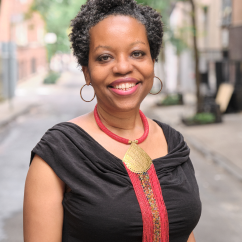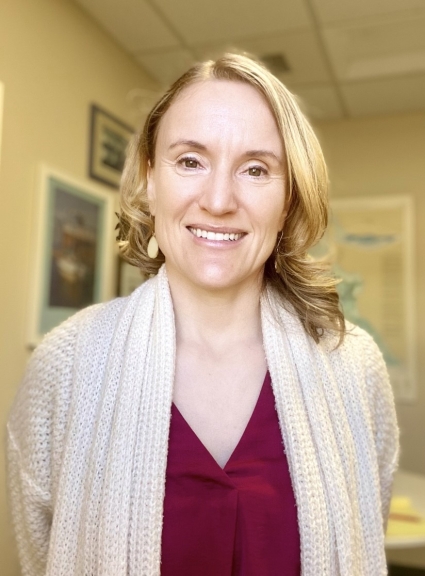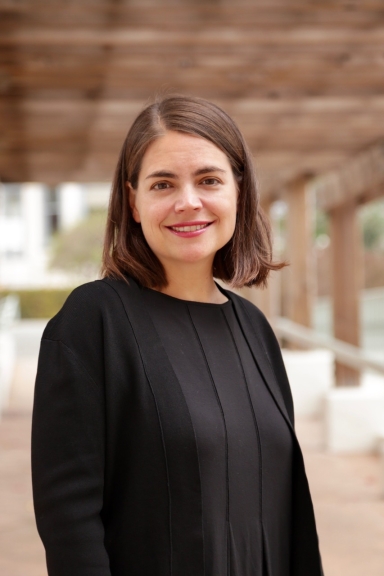About MPILONLE (“A Good Life”)
Our local partner in South Africa is Mpilonhle, a non-profit organization dedicated to improving the health, social development, and well-being of youth. Their name, which means “a good life” in isiZulu, perfectly captures their mission to create a brighter future for the next generation. They primarily work in the rural and underserved uMkhanyakude District of KwaZulu-Natal, a region where our partnership will allow us to engage directly with critical public health and community development challenges.
Mpilonhle
Our collaboration with Mpilonhle will offer an unparalleled opportunity to see firsthand how grassroots initiatives can create tangible change. We’ll be working alongside their staff and community members, learning about their innovative approach to serving the most vulnerable populations.
This includes:
- Mobile Health Clinics: Mpilonhle’s mobile units bring vital healthcare services and education directly to rural schools and communities. We will gain insight into how these units operate and provide services such as HIV/TB testing, counseling, and health education.
- Youth Empowerment Programs: Their work goes beyond health, focusing on social empowerment for young men and women. We’ll learn about their comprehensive programs that address issues like gender-based violence, economic empowerment, and digital literacy.
- Community Engagement: We’ll witness Mpilonhle’s commitment to reducing stigma and building strong community partnerships. This will provide a unique perspective on the importance of cultural context and collaboration in international development.
This partnership is a cornerstone of our course, providing an immersive and ethical learning experience. By collaborating with Mpilonhle, we are not just observing; we are actively participating in a mutually beneficial relationship that supports their mission while enriching our academic and personal understanding of global health and development.

Rivonia Circle
Rivonia Circle is a South African non-profit organization that functions as a think tank and a platform for civic engagement. It was founded to address what it identifies as a national crisis characterized by high unemployment, inequality, corruption, and a crisis of leadership. The organization’s core mission is to redefine South Africa’s political landscape by producing new ideas and solutions for social development and by fostering a more participatory political culture among citizens, particularly the youth.
Rivonia Circle’s work focuses on:
- Policy Research and Ideas Generation: As a think tank, Rivonia Circle conducts research and develops innovative policy ideas aimed at tackling South Africa’s most pressing challenges. They publish their findings and contribute to public dialogue on issues like economic growth, social justice, and good governance.
- Community Mobilization and Civic Engagement: Rivonia Circle aims to get ordinary South Africans involved in democratic processes beyond just voting. Their flagship program, the Democracy Builder, is a structured listening tool and a workshop model that facilitates conversations about democracy, governance, and activism. It encourages communities to identify and discuss local problems they want to solve, and co-creates and supports community-led projects to directly address these issues.
- Developing New Leaders: A key part of their mission is to identify and nurture a new generation of leaders. They aim to empower young people to take on leadership roles in various sectors—whether in business, civil society, or government—to drive meaningful change.
- Public Dialogue and Accountability: Rivonia Circle hosts public dialogues and events to encourage open and honest conversations about the state of the nation. They work to hold political leaders and institutions accountable for their actions and to reduce the public’s disillusionment with the democratic process.
In essence, Rivonia Circle’s work is not about becoming a political party, but rather about creating a more engaged and active citizenry. They believe that by empowering people with ideas, skills, and the agency to act, they can help build a more resilient and sustainable democracy in South Africa.
Middlebury Faculty
Dr. Anne Campbell
Anne Campbell, Ph.D. (she/her)is an independent consultant and scholar, working on projects related to international human rights, higher education scholarship programs, international student mobility policy, diplomacy, social change, and climate justice. Her consulting work includes UNESCO, USAID, Open Society Foundations, Mastercard Foundations, Arizona State University, and Colorado State University. Formerly, Anne was an Associate Professor at the Middlebury Institute of International Studies (MIIS) and U.S. Fulbright Scholar in Kosovo, working with the Ministry of Education to support higher education policy making. She also has served as a program manager at the Open Society Foundations (New York) and as a lead administrator at Doctors without Borders (Haiti). She recently finished her first book titled, Finding Freedom? Queer International Students in the United States (MIT Press, 2026), which focuses on students who come from countries without legal protections for LGBTQ+ citizens. Dr. Campbell has taught at The Middlebury Institute of International Studies since 2016. She co-led a prior MIIS global course at Partners in Health in Rwanda.

Yuniya Khan, MA
Originally from Guyana, South America, Yuniya has worked in the non-profit and international development fields for more than 20 years. She is the founder of The Emerge Project, a storytelling initiative that aims to elevate the voice and impact of grassroots Black entrepreneurs and community leaders in South Africa and Brazil, and is an Associate with NPAG, a professional services firm that specializes in top-tier social sector talent strategy and search. She is deeply committed to supporting programs that enhance the wellbeing and dignity of Black and Brown people, particularly immigrants and those in communities that are overlooked and marginalized. Yuniya holds a BA in TV/Radio from Brooklyn College, an MA in Theology from Fuller Theological Seminary, and an MPA in International Management from Middlebury Institute of International Studies at Monterey.
Dr. Scott Pulizzi
Scott Pulizzi is an accomplished development professional who brings 25 years of experience to the classroom. He has worked with United Nations agencies, national governments, non-governmental organizations, foundations, and businesses in dozens of countries to improve well-being. This includes serving as a team leader at UNESCO in Paris, a program director for the Government of Botswana, a policy evaluator with WHO in Indonesia, and a junior high school English teacher as part of the Japanese Exchange and Teaching (JET) Program.
In addition to teaching at the Middlebury Institute, Dr. Pulizzi is a technical advisor to international and local civil society organizations on strategy and program development. He currently serves as Director with Education Development Center, a global organization dedicated to addressing educational, health, and workforce development challenges worldwide.
Dr. Pulizzi aims to prepare the next generation of practitioners to think systemically, challenge assumptions, see interrelationships, and break patterns. He has found that these skills are central for students to be successful program managers, project evaluators, policy analysts, and leaders to improve human, social, and economic conditions.
Middlebury Institute Experiential Learning Team

Dr. Carolyn Taylor Meyer
Carolyn Meyer is the Director of Experiential Learning at the Middlebury Institute of International Studies at Monterey. In this role, she connects students and faculty with real-world learning opportunities, including semester-long practica, global courses, and community-engaged research projects. She is also the Institute’s representative for external fellowships like Fulbright, Boren, and Projects for Peace.
A world traveler who has visited over 70 countries, Carolyn has worked on international projects in Ecuador, Rwanda, India, and the Balkans. She has also served as an adjunct instructor, teaching International Relations and US Foreign Relations at Monterey Peninsula College and California State University Monterey Bay. She is a recipient of the Forum on Education Abroad’s Professional Certification in Education Abroad.
